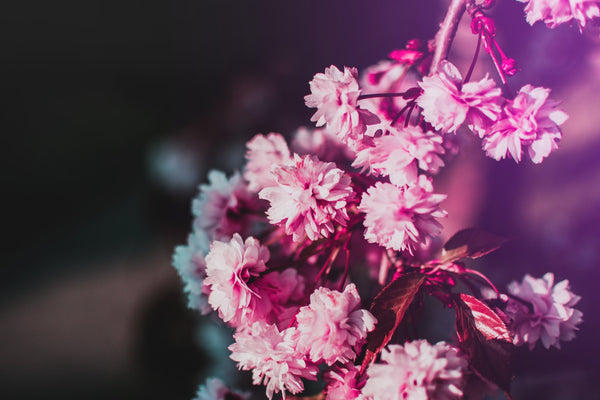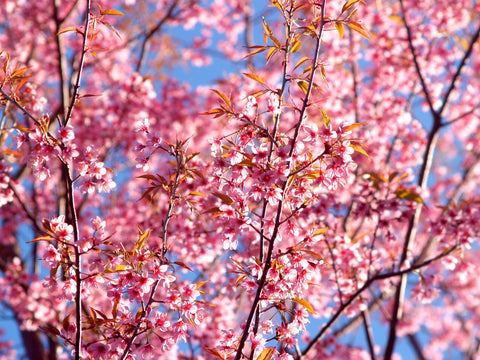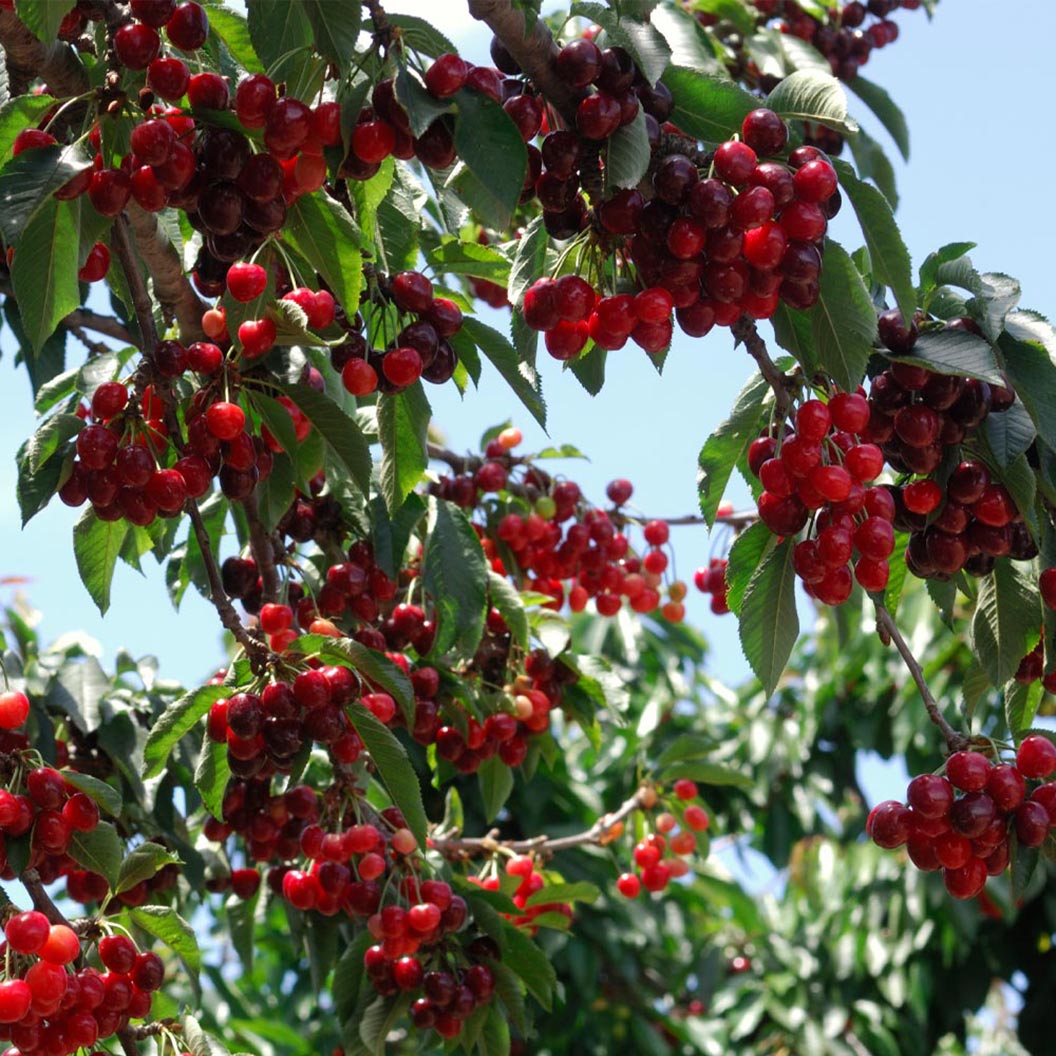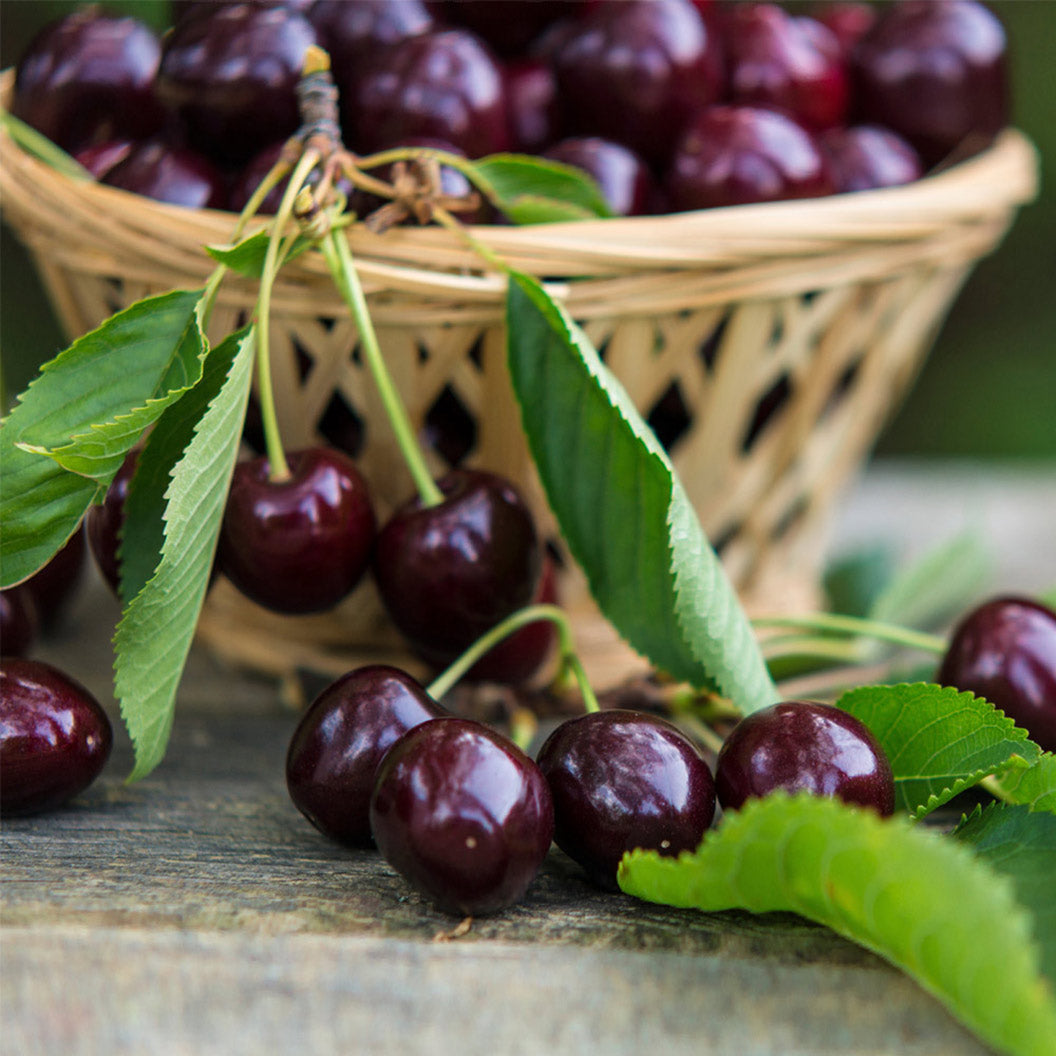Plant Care 101: Kwanzan Cherry Tree

Last updated: May 29 2019

So, we've talked a lot about flowering cherry trees since the start of spring but for good reason: Flowering cherries are the symbol of the season. And when it comes to this vibrant, brightly-hued collection of trees, the Kwanzan Cherry Tree isone-of-a-kind.
For starters, it boasts a deep pink color that stands out amongst other flowering varieties. And it's super easy to add to your landscape, from planting to care and beyond...especially with our tips and tricks.
Scouting the Area
First thing's first: Selecting the perfect location. Thankfully, the Kwanzan Cherry Tree isn't finicky or fussy. All it needs to really thrive is full sun and well-drained soil.
Full sun means about 6 to 8 hours of sunlight daily for this coveted tree. And it acclimates best in growing zones 5 through 9, with cold hardiness down to -10 degrees. That translates to Kwanzan good looks from North to South and even out West.

Once you've scouted the area and are ready to plant, dig a hole that's about twice the width of your tree's root ball. From there, it's as easy as 1-2-3. Place your Kwanzan Cherry Tree, backfill the soil and then water the area to settle your tree's roots.
And the best time to plant?Both spring and fall are ideal - simply wait until the final frost has passed in spring and before the first frost hits for fall.
Ongoing Care
Planting is the hardest part. Seriously. Long-term care for the Kwanzan Cherry Tree is unbelievably straight-forward and effortless.
The most important part is watering, and the Kwanzan is so carefree that it doesn't take much. We recommend watering about once or twice weekly, but if you're really not sure when to give your Kwanzan a drink, simply check its surrounding soil.
When the top 2 inches of soil are dry, it's time to water. A slow trickle with a garden hose for approximately 30 minutes is best. And the weather does play a part - you may have to water your Kwanzan Cherry twice a week during hot summers or just once every three weeks during fall.
Either way, checking your soil is a foolproof method for best results.
Pruning
Don't be daunted - pruning for the Kwanzan Cherry Tree is easy!All you need to do isremove the current year’s old, faded flowersto promote healthful growth for the following season. Pruneyour Kwanzanduringdormancy and remove dead, damaged or diseased branches as well.

No serious pest or disease issues affect this variety, and any that do can be mediated by cleaning your leaves. Pruning is straight-forward too - thin out your young plants to three or four main branches for optimum fruiting, and after blooming in the spring, clip the tips of your branches. It's that easy.
Tip: Sterilize your tools with rubbing alcohol to ensure a healthy cut during pruning.
Mulching and Fertilizing
Flowering Cherry Trees do not require fertilizer for the first two years - just keep any errant weeds in check. Mulching around the base of the tree is also a plus, since it protects and nurtures the soil while keeping roots moist.
When the third year rolls around,fertilizeyour Kwanzanwith a nitrogen blend. Apply it once in the spring, or spread the nitrogen amount into 2 to 4 equal applications over the spring and summer seasons.
More on Planting
Basically, our Kwanzan Cherry Tree is second to none when it comes to beauty and ease. But we do have a couple more bits of information to make your Kwanzan Cherry amazingly successful:
- These cherry trees don’t produce edible fruit to maintain, but they do provide tons of ornate pink, purple, and white blooms - no fruit means even easier care.
- The Kwanzan doesn't have any serious pest or disease issues, so you won't have to use harsh chemicals. And if you do encounter any issues,they're easy to treat with a natural insecticidal soap or BioNeem solution.
So, if you're looking for springtime color...without hassle, look no further because our Kwanzan Cherry Tree has it all. Check out more about this spring staple here!

Written by
Blair Brown
Blair is the Content Marketing Manager at FastGrowingTrees.com, and though she's not your traditional gardener, the planting world is definitely growing on her (pun intended!). She's enjoyed digging into plant care and maintenance and growing her plant collection, especially with exotic indoor varieties.












